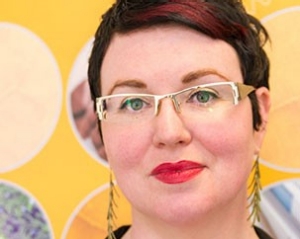Knechtel went on to earn a master’s from the University of Waterloo and a PhD in Victorian literature from York University. Now she’s grown past her roots to help other scholars traverse the highs (and lows) of postsecondary research, as a research facilitator for humanities and social sciences at Wilfrid Laurier University.
Knechtel works within the field of “AltAc” — short for “alternative academics.” AltAc serves a growing trend in postsecondary institutions and includes trained scholars who work with faculty as partners and research facilitators.
On a day-to-day basis, the tasks required to facilitate research can vary widely. Generally, AltAc professionals work as advisors, campaigners and editors. Some of Knechtel’s daily responsibilities in Wilfrid Laurier’s office of research services include searching for funding opportunities, monitoring agreements, strategizing with researchers, editing grant proposals, coaching and benchmarking research progress.
“I am challenged to initiate new research ideas by thinking critically and technically,” says Knechtel, who was recently featured in a Government of Canada research support fund article.
Knechtel credits her Concordia education as being avant-garde for its time. “My experience with articulating big ideas started at Concordia,” she says.
“My passion for academia started within the Montreal café culture. Before ‘active learning’ became a nouveau teaching model, professors at Concordia were encouraging us to drive our own dialogues,” she says. “We would meet informally over coffee to have great debates and philosophical conversations. We practised being visionaries, intellectuals, idealists.
“I have vivid memories of gathering with my Concordia peers to watch the 1995 Quebec referendum,” Knechtel recalls. “We saw our classroom spill over into the city. Many of the theories we were discussing in class were being demonstrated in the city — literally, in the form of demonstrations.”
As digital tools and research methods in universities grew, Knechtel kept at the front of the curve by learning new technologies essential to academia. She has worn different hats at many universities across Canada, sometimes two or three at once.
“I was simultaneously teaching at the University of Manitoba while completing a postdoctoral fellowship in digital humanities and new media at the University of Winnipeg,” Knechtel recalls. Digital humanities is a new academic discipline that uses technology to enhance the scope of humanities scholarship.
“I had one foot in AltAc and one foot on the tenure track. I got my first taste for both and I decided that the skillset I had was best suited for an AltAc career,” she says.
As the crucial liaison between researchers and funding organizations, AltAc professionals like Knechtel bridge academics to business and community organizations. With tenure positions dwindling, broader skillsets are more important than ever to earn and allocate funding grants.
Knechtel recognizes how Concordia prepared her for both sides of the playing field.
“My professors at Concordia taught me to examine my world theoretically but also to engage with it practically. I’d advise anyone who wants to stay in academia to know your options, know the unique advantages of your education and, most importantly, know your worth.”
#CUalumni


 Ruth Knechtel, BA 97, is a research facilitator for humanities and social sciences at Wilfrid Laurier University.
Ruth Knechtel, BA 97, is a research facilitator for humanities and social sciences at Wilfrid Laurier University.